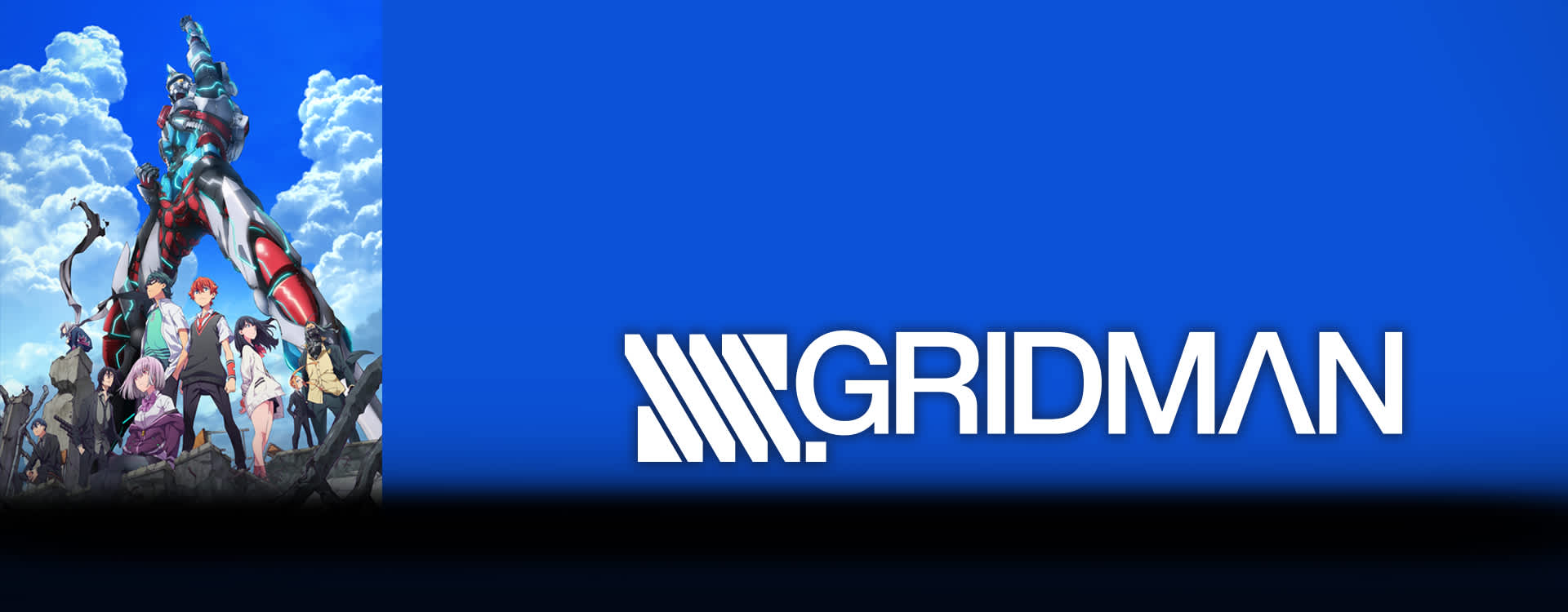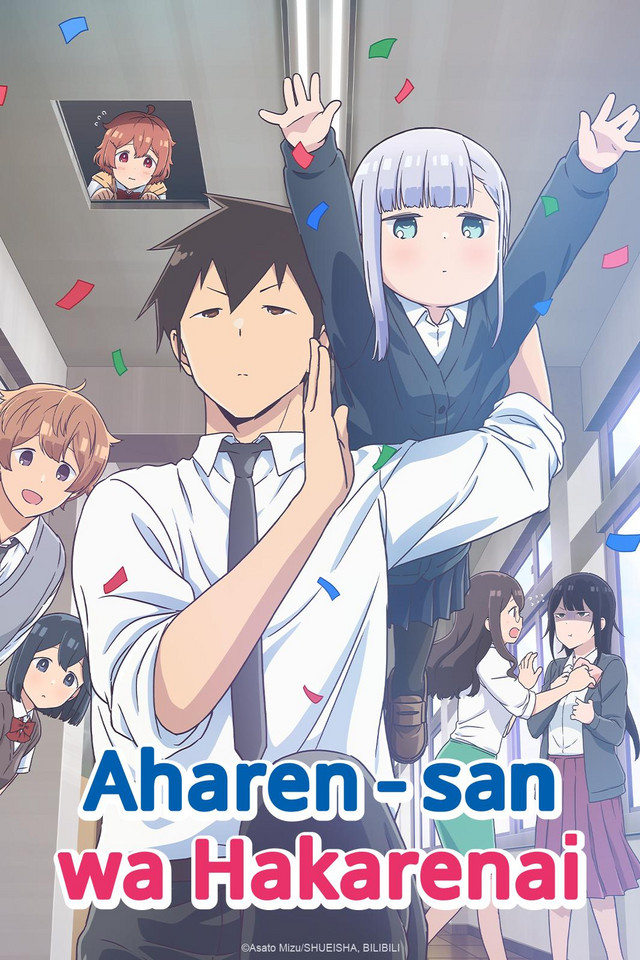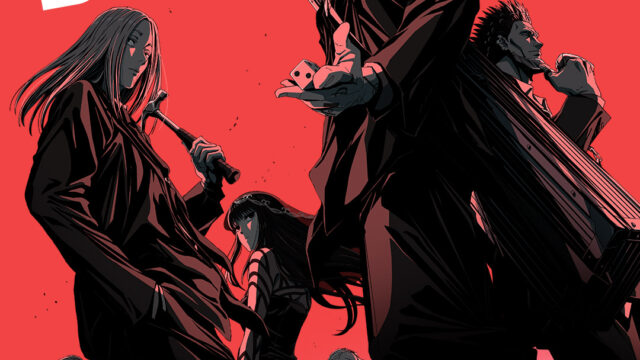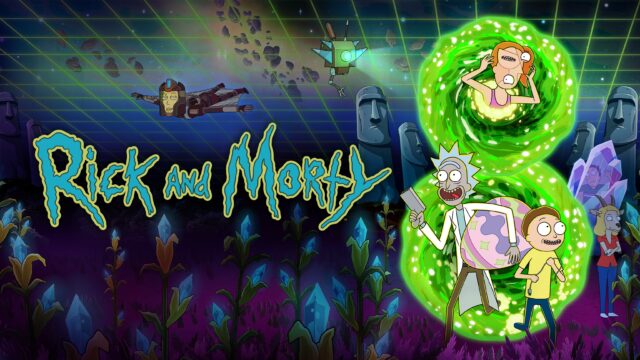English Dub Season Review: SSSS.Gridman Season One
Deus vs. machina!
Overview (Spoilers Below!)
A boy wakes up with no memory at all. He was sleeping in a shop owned by Rikka Takarada’s family; she explains that they’re classmates, and his name is Yuta Hibiki. Yuta reunites with his best friend Sho Utsumi and readjusts to school life, but he also begins to see things that no one else can—strange men lurking in the dark, voices urging him to do what he must do, what only he can do.
And then a kaiju attacks. Yuta realizes that he can combine with Gridman, a mysterious mecha he saw on a computer screen in Rikka’s shop, in order to defeat the monster. Utsumi and Rikka help out by typing commands on the computer, an ancient piece of hardware that Utsumi dubs “Junk.” The next morning, time appears to have been reset. No one remembers the kaiju attack but Yuta, Utsumi, and Rikka (the newly formed “Gridman Alliance”), and all damage has been magically repaired. Yet those who were killed by the kaiju seem to have been erased, not just from life, but from the memories of their classmates and families—after volleyball club member Tonkawa dies, a classmate hauntingly tells Yuta, “No one in our class plays volleyball.”
All the while, Yuta’s classmate Akane Shinjo sits in her bedroom, crafting tiny models of kaiju that the alien Alexis transforms into the real deal. Akane is restless and sadistic; she wants her environment to be perfect, so when someone displeases her, their swift death by kaiju is imminent. Her most complex creation is the humanlike Anti, an animalistic young man whose sole ambition in life is to destroy Gridman.
The Gridman Alliance works to unravel the mysteries around them, aided by some new friends—a group of four unruly adults who claim that they’re students of Neon Genesis Junior High. These four rascals—Caliber, Borr, Vit, and Max—are able to transform into support items for Gridman to use in the battles against kaiju. But as he fights to protect the city, Yuta’s list of questions just keeps on growing. Why can’t he remember his past? Who is creating these kaiju, and for what purpose? And why did a kaiju tell Yuta that nothing exists outside their city? It seems impossible—but if aliens and kaiju are for real, then who knows what really lies outside the city walls.
Our Take
Mecha shows aren’t really my thing. I’m much more into the emotional side of storytelling, so for me, shows that focus on endless battles are endlessly boring.
That’s why I love SSSS.Gridman. This is a mecha show with heart, with clever mysteries, with character development and fascinating themes. There are battles, sure—those who enjoy the thrill of a good mecha/kaiju fight will not be disappointed—but SSSS.Gridman is so much more than that.
Despite the fact that this is a show about giant heroes and monsters, the show’s small emotional moments are what really makes it stand out. We see characters doing everyday tasks, going about their lives, attempting to cope with the horrific realities of their kaiju-infested existence in the best way they can—and it’s a wonderful subversion of what we might expect from an action-oriented series. Akane fights battles with words as often she uses kaiju. When Rikka and Utsumi believe Yuta is dead in the episode “Defeat,” their mourning feels real and raw.
Mysteries are unraveled in a series of inventive and thematically significant reveals—one memorable example is when Yuta falls asleep on the train and nearly misses his stop, and it’s initially played for comedy. Later, Max notes that Yuta fell asleep because he’s so stressed about Gridman and kaiju that he’s utterly exhausted, turning a joke into a key piece of character development. And even later, the kaiju Anosillus reveals that people fall asleep on the train because there’s nothing outside the city, bringing this small detail once again back around to significant plot developments. Likewise, the truly stellar episode “Dream” discusses how Akane cannot wake up, foreshadowing the clever twist in the final moments of the series (no spoilers!).
While Rikka might be the most popular character in some corners of the internet (have I mentioned how weird it is that this actual child has become a weeb sex symbol?), Akane is definitely the most complicated. We watch as she slowly devolves into despair, losing her will to live as her control over her environment slips through her fingers. It’s a compelling and realistic portrayal of depression, and it makes Akane a relatable villain. Her arc explores her drive to mold the city in her image, and the unpleasant truth that, no matter how much we might long for it, there’s really no way to achieve a perfect world. That sometimes, the people who lash out are the loneliest. That sometimes, life really is meaningless—but it’s support and communication, not godlike control, that allows us to find the meaning we long for.
Anti’s arc, too, delves into some fascinating themes. Although he’s technically a kaiju—and he’s almost completely ignorant of human customs like baths and meals—Anti becomes more and more personlike throughout the series, developing a conscience and relationships with the people around him. At what point, SSSS.Gridman probes, do monsters become human? Would it be immoral to kill a kaiju who looked like a man? Does the difference between the monsters and humans fall to genetics, or does it simply lie in our choices?
The animation in this show is glorious. The backgrounds are extremely lifelike, filled with tiny details and imperfections that make locations feel like our world, not an idealized, sterilized version of it. This makes for a more visually interesting viewing experience, but also symbolizes the series’ theme of Akane’s discomfort with imperfection. The prop symbolism is truly suburb, from the legions of trash bags that cover Akane’s floor to her cracked phone screen to the box she leans against in the final episode, labeled “fragile.” Kaiju designs are cool and inventive, Anosillus is effectively creepy, and Akane’s kaiju design is chillingly disturbing. Perhaps the most inventive use of animation, however, is in “Dream,” when abnormally bright colors and comic-book visuals create a haunting ambiance that tips us off that the characters may not be in the real world.
The sound design is also novel—white noise, ambient sounds such as the clatter of a bus, and creepy choral music build tension, perfectly complementing the moody mist that hangs over Yuta’s city. But when the music needs to be epic, Shiro Sasigu’s score can pull that off too. Long pauses are utilized both for humor’s sake and for the creation of somber ambiance.
The voice acting is mood-appropriate as well: Brandon McInnis (Yuta) and Jill Harris (Rikka) do an excellent job of sounding like your average students just trying to get through another day in a stressful and depressing world (although Greg Ayers as Utsumi never quite felt natural enough). And yet the show isn’t a downer—Caliber, the most awkward man alive, is always good for some physical comedy. On one occasion, the answer to a Gridman malfunction is simply to turn Junk off and back on again.
At times, SSSS.Gridman can be a wee bit overdramatic, culminating in a series finale that’s so over-the-top it ceases to be satisfying. But more often than not, the dramatic work to this show’s favor and Gridman’s poses are good, cheesy fun.
There are some plotlines that could stand more development. Yuta’s amnesia is a mystery he’s attempting to unravel, but it still plays very little role in his everyday life—we don’t get to see him struggling to navigate school life with lost memories, for example. In the case of the Neon Genesis crew, it’s unclear why these obvious adults are pretending to attend Junior High. Rikka once wonders if she’s the cause of the kaiju attacks, in a compelling moment that’s never followed up on. The “city in the sky” is visually fascinating but never thoroughly explained. And I’m still not really sure what it means that the Neon Genesis team and Gridman are all supposedly pieces of one shared consciousness—it’s a really cool idea in theory that isn’t developed well enough for me to buy it. Alexis is given basically no motivation for his dastardly deeds. And why doesn’t Gridman have any memories from his own world, anyway?
Unfortunately, SSSS.Gridman can also fall back on tired tropes. The “character dies and we’re all very sad and then he’s magically resurrected” plotline has been done to death before, and there’s far too much uncomfortable sexualization of female characters for a show of this caliber. The swimsuit episode doesn’t add much to the plot (other than a transparent excuse to show off Rikka and Akane in bikinis), and a heavy dose of fat shaming makes “Provocation” a fun but sometimes unpleasant watch (“Confrontation” leaves a similarly bad taste in my mouth with its shaming of cross-dressing). And Gridman’s use of support objects prevents battles from becoming as interesting as they could be—instead of figuring out creative ways to thwart to each kaiju, an imperiled Yuta can simply count on the nearest Neon Genesis member to fight his battles for him. There’s no need for him to go through any growth or improvement of his own. Honestly, Yuta is the least interesting character in this whole show, almost comically so.
Perhaps the series’ weakest episode, “Suspicion,” follows an utterly ridiculous jealousy plotline where Yuta declares he’s in love with Rikka out of nowhere and Gridman, of all people, encourages him to spy on her. But as the show progresses and Yuta’s supposed crush fades into the background, it becomes unclear why this love plotline was clumsily shoved into a show that didn’t need it. The focal relationship in SSSS.Gridman seems to be between Rikka and Akane, anyway—Rikka is determined to be Akane’s friend, no matter the cost or the reason, leading me to believe that Rikka having a crush on Akane would make much more sense. The halfhearted Rikka/Yuta subplot is thrown a brief bone in the series’ final episode, but all in all, it’s underdeveloped and unnecessary.
But what this show lacks in clarity, it makes up for in intrigue, emotion, and attention to detail. Akane’s arc will move you, the mysteries will surprise you, and Gridman will endear you. I’d definitely recommend shouting “Access flash!” and taking this mecha out for a ride.

























"There are also other characters that come and go (also owned by the Warner Bros. Discovery conglomerate media company)."
Huh. Is that just referring to other characters from the show itself, or is this implying that the new season is going to have cameos from other WBD IPs